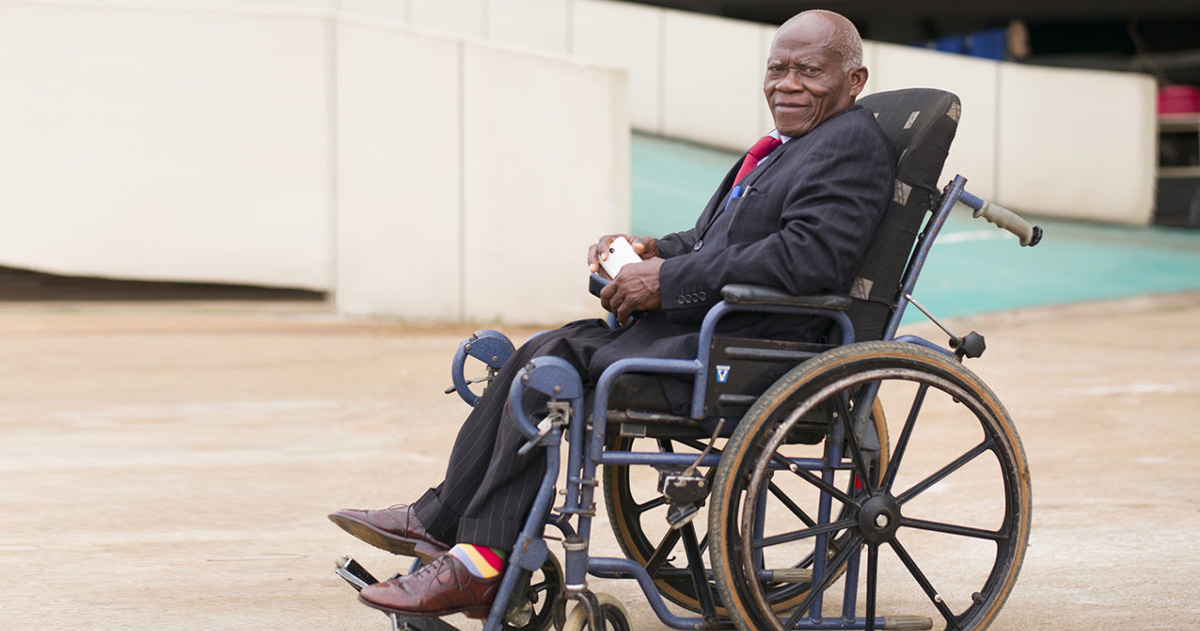On 25 November 2021, the Disability Rights Unit, Centre for Human Rights, University of Pretoria, hosted a report validation workshop at Avani Hotel and Casino, Gaborone, Botswana. The draft report titled ‘Persons with disabilities and barriers to equal access to justice in Botswana: A research study of the criminal justice system’ forms part of a larger study on access to justice, which the Unit is undertaking in South Africa, Zambia and Botswana. The workshop was facilitated by Ms Dianah Msipa and Mr Wilson Macharia from the Disability Rights Unit, alongside the consultant who undertook the research Ms Keikantse Phele. In attendance were persons with disabilities, and representatives of Organizations of Persons with Disabilities and government departments such as the Judiciary.
The key finding of the draft report is that persons with disabilities indeed participate in the criminal justice system, either as complainants, witnesses, accused persons or even as judicial officers and lawyers. They, however, face several barriers due to the inaccessible justice infrastructure, negative attitudes and stereotypes by justice sector personnel, inaccessible communication, and lack of awareness on how to accommodate different types of disabilities. There are also several barriers caused by the prescribed procedures and the laws that inform the operations of the criminal justice system in Zambia. These include: the assessment of fitness to plead for persons with psychosocial and intellectual disabilities, the methods and formats of issuing summons, the lack of recognition of sign language interpretation for the Deaf, the lack of provision for braille and other alternative formats for persons with visual impairments, and the failure to recognize the legal capacity of persons with intellectual and psychosocial disabilities. Beyond identifying the said barriers, the study proposes key recommendations, which shall enhance access to justice for persons with disabilities in Botswana. These include the need to provide procedural and age-appropriate accommodations tailored to meet the needs of persons with different types of disabilities; training of the criminal justice personnel on disability rights, including the appropriate accommodations; and the provision of court proceedings and material in alternative and accessible formats. The justice system should further recognise that all persons with disabilities have the right to enjoy legal capacity.
In his opening remarks, Prof Frans Viljoen, the director of the Centre for human rights welcomed the accession of the United Nations Convention on the Rights of Persons with Disabilities by Botswana in July 2021, stating that it shall go a long way in realizing the rights of persons with disabilities in Botswana, including the right to access to justice as enshrined on article 13 of the Convention. This was reiterated by Mr Wabotlhe Chimidza, the president of the Botswana Federation of the Disabled, who further emphasized the need for collaborative efforts between various actors, including those in government, judicial officers, justice personnel, lawyers, civil society, regional and international organizations to enhance access to justice for persons with disabilities in Botswana.
The Disability Rights Unit expresses sincere thanks to the participants of this workshop. This study was made possible by the support of the Ford Foundation, and the participation of all \the individuals, government departments and disabled peoples’ organisations that took part in the study. We also wish to thank the researcher, Ms Keikantse Phele, for her hard work towards the completion of the study.


